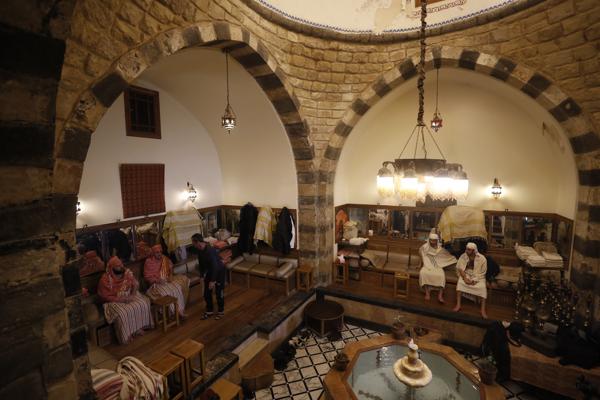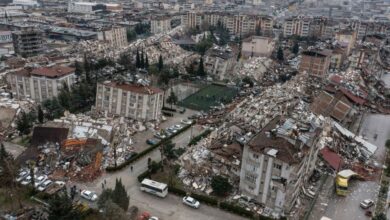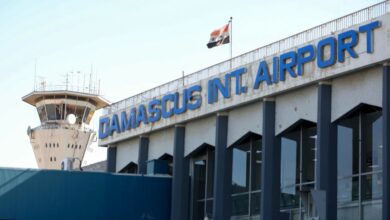
DAMASCUS, Syria (AP) — At Hammam Bakri in Damascus’ Old City, Syrian men wrapped in towels from the waist down lie down on a scalding marble floor. Masseurs vigorously scrub their skin with a soap-soaked loofah and wash them down with hot water.
Around a hexagonal fountain outside — traditionally found in old Damascene houses — patrons sip an infusion of herbs and dried flowers known as zhourat. The soothing smell fills the air around the domed roof.
After having fallen victim to modernization, Syria’s ancient public bathhouses, known as Hammamat, are picking up steam again, largely due to prolonged electricity cuts during a particularly cold winter in this war-scarred country.
With soaring fuel prices and barely enough power to heat water at home, many are turning to the few remaining Hammams in cities like Damascus, Homs and Aleppo more to the north.
Damascus, along with major Arab cities like Baghdad, Mosul and Cairo, is home to some of the country’s oldest and best bathhouses, some of them over a thousand years old. Many of them have closed due to modernization, lack of business and the war that left much of the country in ruins, crippled the economy and shrunk wages.
Now, officials at Damascus’ remaining public baths say they are doing brisk business again but it’s mostly due to residents who come for the hot water — a luxury they no longer find at home. Power outages often run for more than 20 hours a day in Damascus. Few can afford to have a private generator or pay the price of fuel.
The difficult times, say owners of public bathhouses, are in a way helping keep the tradition alive.
For 10,000 lira ( less than $3), the customers at Hammam Bakri located within the old city are given towels, a loofah and a piece of traditional olive oil soap. They are then scrubbed in a steamy room, often with Arabic music in the background.
“Having a hot shower is very different than having cold showers especially in these temperatures,” said Husam Hamami, the manager. “We are now going through a difficult time. There is little electricity and the water is little so people are not even getting a chance to heat their water so we are finding that many people are coming in once a week.”
Bakri is one of the oldest bathhouses in Damascus, established in 1069. Instead of tourists, it is now residents who come in more frequently. On a recent day, a group of men sauntered in elevated clogs made from wood, known as qabqab, as they patted themselves dry with towels, emerging from a fog.
“There’s been a good turnout from people who are not tourists looking to relax. These people are coming to bathe,” Hamami said.



